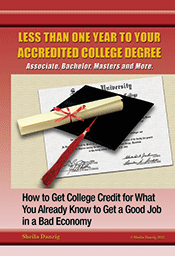This writing is in answer to an article from New York Times and it elucidates a report from civic agenda with the heading “With Their While Lives Ahead of Them” and was printed by Bill and Melinda gates foundation. Some six hundred young grownups of age groups 22- 30 who had left college before obtaining a degree were charted.
I face the inaugural comment that was done by Tamar Lewin “Only 1 out of 5 learners who register in 2 year institutions graduates within 3 years. And even with 4-year colleges, only 2 out of 5 learners finish their degree within 6 years”.
As stated in last, the 3 and 6-year periods requisite to be inspected before they are censured. Spending additional time to finish the degree than typical period (150% point meaning, three years for 2-year course and six years for 4-year course) is frequently more a function of the populace joining college than of the academic learning system. 85% of college learners are moreover part time learners or fully-grown learners, well last the middling student age, who possess full time jobs work while occupied to their bachelor degree. We should think about extended period of time, which lets how such learners chase for achievement of degree.
I have faith in that online degrees at government funded universities and colleges maybe their greatest path as it aids to decide the topic of moneys and time.
- 60% of individual who gave up in mid did not have any economic back from their parents for academic learning.
- 60% of learners who expected economic aid from parents were competent to finish their degree.
- Among individual who gave up, sixty percent did not get loan aid or scholarship when finishing, only forty percent did not obtain any aid.
- The #1 motive for leaving is that they could not back themselves without any economic aid from parents and join colleges at same instance.
- More than one out of three specified that even if they have adequate funds to buy books and give fees, they were not competent to return to school due to responsibilities of work and household.
- Among the learners who accomplished, 72% were of yearly earnings range of $35,000 while individual who gave up more than fifty percent of households were earning less than $35000 per year.
What jumps out? One is 85% matter. The public strategies are prepared with the hypothesis that college learners are joining full-time on campus and joining straight from secondary school and get economic back from parents. But the real fact is that 85% are big, and/or study part-time and/or working and/or economically self-governing. The 2nd is that learners having inferior earnings have considerable contests. Lot of learners who have poorer earnings are in this 85% group.
It is no wonder, that study defendants did not think the answers as making submission procedure stress-free or toting online courses. To elevate the accomplishment rate student’s requisite economic back, cost-reduction and services for baby-sitting, which let more economic back for part-time learners. Though with online learning at national funded colleges prices drop melodramatically and child care is not a question.
What outcomes are brought into being by this survey? Will any student heed to real facts concerning the contests faced by enormous populace of current college learners? We must drop the postulation that secondary school learners and their parents are odd viewers for selection of making of public rules for advanced academic learning and be convincing in our valuation of academic learning in the 21st century.



